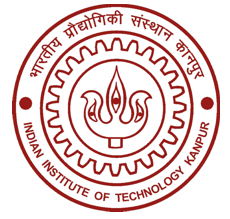| Date |
Topics |
Readings/References |
Deadlines |
Slides/Notes |
| July 28 |
Course Logistics and Introduction to Machine Learning |
Linear Algebra review, Probability review, Matrix Cookbook, MATLAB review, [JM15], [LBH15] |
|
slides |
| Supervised Learning |
| Aug 3 |
Learning by Computing Distances: Distance from Means and Nearest Neighbors |
Distance from Means, CIML Chapter 2 |
|
slides |
| Aug 5 |
Learning by Asking Questions: Decision Tree based Classification and Regression |
Book Chapter, Info Theory notes DT - visual illustration |
|
slides |
| Aug 10 |
Learning as Optimization, Linear Regression |
Optional: Some notes, Some useful resources on optimization for ML |
|
slides |
| Aug 12 |
Learning via Probabilistic Modeling, Probabilistic Linear Regression |
Murphy (MLAPP): Chapter 7 (sections 7.1-7.5) |
|
slides |
| Aug 17 |
Learning via Probabilistic Modeling: Logistic and Softmax Regression |
Murphy (MLAPP): Chapter 8 (sections 8.1-8.3) |
|
slides |
| Aug 19 |
Online Learning via Stochastic Optimization, Perceptron |
Murphy (MLAPP): Chapter 8 (section 8.5) |
|
slides |
| Aug 24 |
Learning Maximum-Margin Hyperplanes: Support Vector Machines |
Intro to SVM, Wikipedia Intro to SVM, Optional: Advanced Intro to SVM, SVM Solvers |
|
slides |
| Aug 26 |
Nonlinear Learning with Kernels |
CIML Chapter 9 (section 9.1 and 9.4), Murphy (MLAPP): Chapter 14 (up to section 14.4.3) |
|
slides |
Unsupervised Learning |
| Aug 31 |
Data Clustering, K-means and Kernel K-means |
Bishop (PRML): Section 9.1. Optional reading: Data clustering: 50 years beyond k-means
|
HW 1 Due |
slides |
| Sept 2 |
Linear Dimensionality Reduction: Principal Component Analysis |
Bishop (PRML): Section 12.1. Optional reading: PCA tutorial paper |
|
slides |
| Sept 7 |
PCA (Wrap-up) and Nonlinear Dimensionality Reduction via Kernel PCA |
Optional reading: Kernel PCA |
|
slides |
| Sept 21 |
Matrix Factorization and Matrix Completion |
Optional Reading: Matrix Factorization for Recommender Systems, Scalable MF |
|
slides |
| Sept 23 |
Introduction to Generative Models |
|
|
slides |
| Sept 26 |
Generative Models for Clustering: GMM and Intro to EM |
Bishop (PRML): Section 9.2 and 9.3 (up to 9.3.2) |
|
slides (notes) |
| Sept 28 |
Expectation Maximization and Generative Models for Dim. Reduction |
Bishop (PRML): Section 9.3 (up to 9.3.2) and 9.4 |
|
slides |
| Oct 5 |
Generative Models for Dim. Reduction: Probabilistic PCA and Factor Analysis |
Bishop (PRML): Section 12.2 (up to 12.2.2). Optional reading: Mixtures of PPCA |
HW 2 Due |
slides |
| Assorted Topics |
Oct 19 |
Practical Issues: Model/Feature Selection, Evaluating and Debugging ML Algorithms |
On Evaluation and Model Selection |
|
slides |
| Oct 24 |
Introduction to Learning Theory |
Optional (but recommended) Mitchell ML Chapter 7 (sections 7.1-7.3.1, section 7.4 (up to 7.4.2)) |
|
slides |
| Oct 26 |
Ensemble Methods: Bagging and Boosting |
CIML Chapter 11, Optional: Brief Intro to Boosting, Explaining AdaBoost |
|
slides |
| Oct 28 |
Semi-supervised Learning |
Reading: Brief SSL Intro, Optional: A (somewhat old but recommended) survey on SSL |
|
slides |
| Nov 2 |
Deep Learning (1): Feedforward Neural Nets and CNN |
Optional Readings: Feedforward Neural Networks, Convolutional Neural Nets |
HW 3 Due |
slides |
| Nov 4 |
Deep Learning (2): Models for Sequence Data (RNN and LSTM) and Autoencoders |
Optional Readings: RNN and LSTM, Understanding LSTMs, RNN and LSTM Review |
|
slides |
| Nov 5 |
Learning from Imbalanced Data |
|
|
slides |
| Nov 9 |
Online Learning (Adversarial Model and Experts) |
Optional Reading: Foundations of ML (Chapter 7) |
|
slides |
| Nov 11 |
Survey of Other Topics and Conclusions |
|
|
slides |

